How is US move to ban TikTok linked to growing pro-Palestine movement
By Reza Javadi
Discussions about imposing a ban on TikTok, a short-form video platform owned by a Chinese company, have dominated the public discourse in the United States in recent weeks.
The attempts to sell the popular application began during the previous US administration headed by Donald Trump. The incumbent government has intensified the same battle.
Last month, the US House of Representatives passed a bill aimed at pressuring TikTok's Chinese developer, ByteDance, to divest from the company's US operations or face expulsion.
President Joe Biden said he would sign the bill if it passes the US Senate as well.
The legislation sets a strict timeline, giving ByteDance six months to sell its US assets or risk a ban in the country. However, final approval rests with the Senate and Biden’s signature.
Named the Protecting Americans from Foreign Adversary Controlled Applications Act, it overwhelmingly passed in the US House with 352 votes in favor and only 65 against.
Lawmakers advocating for the measure cited concerns that TikTok could potentially grant the Chinese government access to the private information of American citizens through its highly engaging algorithm.
The move, however, was slammed by TikTok's vast user base of 170 million Americans, as well as civil liberties and digital rights groups who warned that a ban would impinge upon freedom of speech, as users are using it to amplify their anger and outrage against genocide in Gaza.
While the White House and US legislators push for action against the Chinese app, the fate of the bill hangs in the balance within the Senate. The upper chamber of the US legislature presents a formidable hurdle, where the path forward is far from straightforward.
The legislation is set to undergo further scrutiny from lawmakers across the American political spectrum, and it is likely to face competition from alternative versions of a ban.
In the broader context, amidst discussions of “national security” and “data privacy”, advocates for Palestine warn that the move is part of a broader pattern of tech censorship in line with the biggest and most sinister project shared by the US government and the influential Israeli lobby.
Many Palestinian voices have been silenced or marginalized on social media platforms amid the Israeli regime’s genocidal war on Gaza. Many of these users see TikTok as a medium to highlight the ongoing genocidal war crimes in the besieged Palestinian territory.
What is the US afraid of about TikTok?
US lawmakers express apprehension over the potential clandestine control of ByteDance by the Chinese Communist Party, the ruling party in China. Despite denials from the company, accusations persist regarding the sharing of sensitive user data with the Chinese government.
In Congressional testimony in March, TikTok CEO Shou Chew refuted such unsubstantiated claims, emphasizing that ByteDance is a private entity independent of government control.
“ByteDance is not owned or controlled by the Chinese government. It is a private company,” Chew was quoted as saying at the time.
Chew condemned the “disappointing” legislative action, pledging vigorous defense measures, including legal recourse, to safeguard the app.
Citing proactive data protection measures, TikTok remains optimistic about the US Senate's vote, highlighting the application's significant economic impact and its extensive user base.
TikTok remains “hopeful that the Senate will consider the facts, listen to their constituents, and realize the impact on the economy, 7 million small businesses, and the 170 million Americans who use our service,” the app owners said in a statement recently.
“This process was secret and the bill was jammed through for one reason: it’s a ban.”
However, skepticism prevails among US legislators, with Senator Marco Rubio alleging during a recent hearing on global threats that Chinese companies, including ByteDance, are subject to control by the Chinese Communist Party.
He underscored concerns regarding TikTok's utilization of advanced AI algorithms, fueled by American user data, raising apprehensions about privacy breaches and manipulation.
“They happen to control a company that owns one of the world’s best artificial intelligence algorithms. It’s the one that’s used in this country by TikTok, and it uses the data of Americans to basically read your mind and predict what videos you want to see,” he said.
In a bid to sever alleged Chinese influence, according to their claims, policymakers advocate for TikTok's sale to a Western entity, positing it as a viable solution.
Despite the social media platform’s repeated denial, emphasizing the Chinese government's minimal stake in ByteDance, the case has been built against it in Washington.
TikTok ban and pro-Palestine movement
TikTok boasts of millions of users across the world who are fiercely against the Israeli-American genocidal war against Palestinians in Gaza and have been posting videos in support of Gazans.
In a recent report, the Independent cited a TikTok user Awa, whose profile on the Chinese application gained a massive number of followers as she posted pro-Palestine content there.
"It has woken up the entire nation," the 26-year-old from New York City was quoted as saying.
"TikTok has made us be able to reach so many people across the nation, to understand what is truly happening to these people – that they are in an occupation, that they are in genocide."
According to a report in the Wall Street Journal, published last month, one of the reasons behind the fresh push in the US to ban TikTok was users engaging with content related to the Gaza genocide.
Jacob Helbert, a member of the US-China Economic and Security Review Commission, was quoted as saying that the six-month-long war was a “turning point” in the US government's move to ban it.
“People who historically hadn’t taken a position on TikTok became concerned with how Israel was portrayed in the videos and what they saw as an increase in antisemitic content posted to the app.”
Anthony Goldbloom, a San Francisco-based data scientist, also referred to “far more views” for videos with pro-Palestine hashtags than posts with pro-Israel hashtags.
“While the ratio fluctuated, he found that at times it ran 69 to 1 in favor of videos with pro-Palestinian hashtags,” said the report, referring to Goldbloom.
Pro-Israel lobby's push against growing dissent
With TikTok emerging as a powerful platform for shaping public opinion on Gaza, especially among the younger generation, pro-Israel lobbies such as the Anti-Defamation League (ADL) have been spearheading the campaign to have it banned ban.
Jonathan Greenblatt, head of the ADL, likened TikTok to a relentless news channel exacerbating anti-Semitism and anti-Zionism without consequences.
TikTok has become “the 24/7 news channel of so many of our young people, and it’s like Al Jazeera on steroids, amplifying and intensifying the antisemitism and the anti-Zion(ism) with no repercussions,” Greenblatt was quoted as saying.
Greenblatt echoed sentiments shared by other pro-Israel groups like the Jewish Federations of North America (JFNA). The JFNA applauded the potential ban, attributing TikTok to “fueling a horrific spike in antisemitism.”
Nursin Atesoglu Guney, an expert in international relations, suggested that the push for banning TikTok aligns with Israel's interests, aiming to curtail the growing pro-Palestine and anti-Israel discourse on the popular social media platform.
However, Guney doubted the effectiveness of such measures, dismissing claims of escalating anti-Semitism and attributing the dissent to a shift in youth perception towards Israel's actions, particularly in the context of the ongoing war on Gaza.
“These protectionist moves will amount to nothing. They might be resorting to those due to the fact that the elections are drawing closer,” said Guney.
“What is really happening is not TikTok paving the way for antisemitism, but showing a real phenomenon, that is the growing dissent among youth against the dominant pro-Israel narrative in the country,” the academic was quoted as saying, calling Israel an “aggressor.”
Israel lobby group AIPAC (American Israel Public Affairs Committee) has also been active in pushing the House representatives to pass the anti-TikTok bill.
Reactions on social media on US move
Social media users blame Israel and pro-Israel lobby groups in the United States for a potential ban on TikTok, while many slam the US Democrats for the controversial move.
Jake Shields, a former mixed martial arts fighter, pointed fingers at the ADL and the AIPAC.
He said the ADL labeled TikTok as a threat to Israel while suggesting that AIPAC's financial support to Dan Crenshaw influenced the congressman's efforts to ban the app.
The ADL said Tiktok Is a threat to Israel
— Jake Shields (@jakeshieldsajj) March 13, 2024
AIPAC the Israeli lobby gave Dan Crebsahaw millions of dollars
Now Crenshaw fights to ban TikTok
This is how democracy works https://t.co/90u6enOlHJ
One user on X called the TikTok bill “another trick.”
Republicans are bringing up TikTok and will get Biden to sign it so Biden can lose some of the young vote. It’s strategy guys. Republicans wanted TikTok ban, I don’t want the democrats to fall for another trick. Hell Facebook & Twitter sells our info too. Not just TikTok. THINK! https://t.co/0xR1RCDcu2
— Abby (@Abbbarn) March 13, 2024
Another user said Republicans, who supported the TikTok ban, would rename it the "Biden Ban" once it is signed, referring to political maneuvering behind the decision.
“I’d wager Republicans who just voted for a TikTok Ban will rename it the ‘Biden Ban the moment he signs it and within weeks that will be the official name and all anyone remembers.”
I'm not a betting man, but I'd wager Republicans who just voted for a TikTok Ban will rename it the 'Biden Ban' the moment he signs it and within weeks that will be the official name and all anyone remembers
— Mark (@markaprovost) March 13, 2024
The recent surge in support for Palestine has revitalized calls to ban TikTok, as the app has become a focal point for content exposing Israel's genocidal practices.
The uncertain future of TikTok: What will happen if the bill passes?
Should the bill come to fruition, TikTok's destiny hangs in the balance, with implications reverberating across global digital landscapes.
While the House version refrains from an outright ban, it mandates ByteDance to divest its ownership within a six-month timeframe as mentioned.
However, pundits argue that this directive, in essence, amounts to a prohibition, given Beijing's reluctance to approve the sale to a Western entity.
Bill Bishop, a prominent China observer, concurs with TikTok's assessment, contending that Chinese policymakers are unlikely to endorse forced divestment, citing TikTok's pivotal role as China's inaugural global internet platform.
“I do agree with TikTok that a law forcing divestment or ban likely means a ban, as PRC [People’s Republic of China] policymakers are not likely to approve a forced divestment,” Bishop was quoted as saying recently.
TikTok's emergence has challenged the dominance of US-based platforms in disseminating global political discourse, thus diminishing Beijing's reliance on Western conduits like YouTube and Facebook, Bishop believed.
Beijing remains steadfast in defending its corporate interests abroad, vowing to employ all necessary measures to safeguard Chinese enterprises operating internationally.
Chinese Ministry of Commerce spokesperson He Yadong underscored the imperative for the US to “respect principles of market economy and fair competition”, calling for Washington to “stop unjustly suppressing foreign companies”.
“China will take all necessary measures to resolutely safeguard its legitimate rights and interests,” the spokesperson was quoted as saying.
Leader: Iran has no proxy forces in West Asia
US fighter aircraft shot down ‘in friendly fire’ amid aggression on Yemen
Yemeni FM: Israel’s sponsors accountable for ongoing aggression on Sana’a
Eight Palestinians killed as Israel attacks Gaza school, hospitals
VIDEO | Rome, Milan host new protests in solidarity with Palestinians
Dec. 21: ‘Axis of Resistance’ operations against Israeli occupation
Spain jurists demand ties with Israel ties be cut
VIDEO | Press TV's news headlines


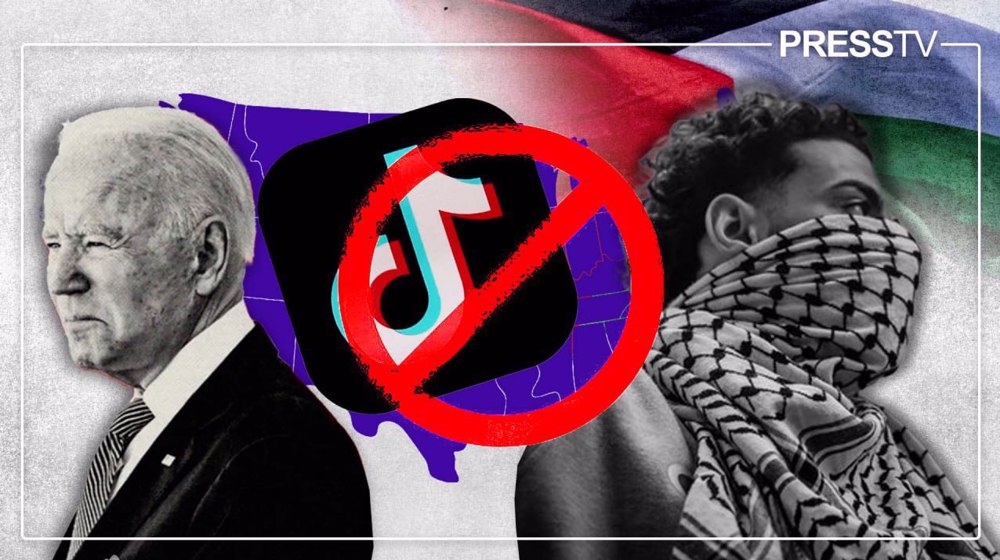


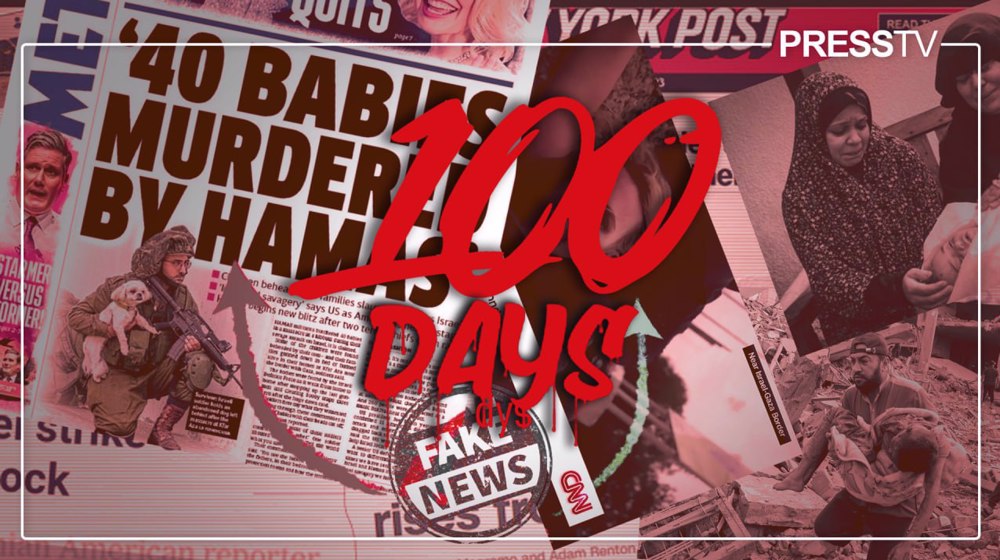


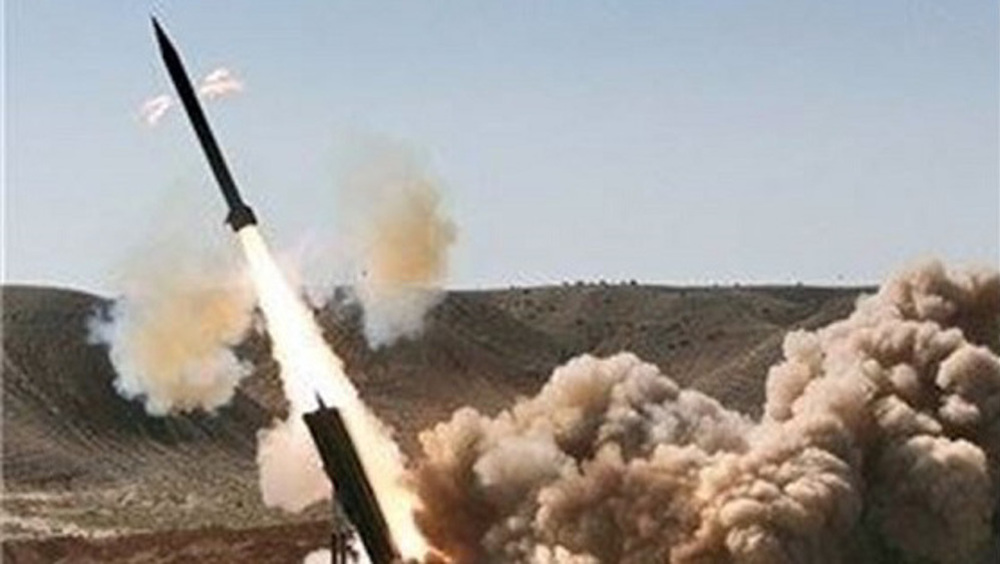




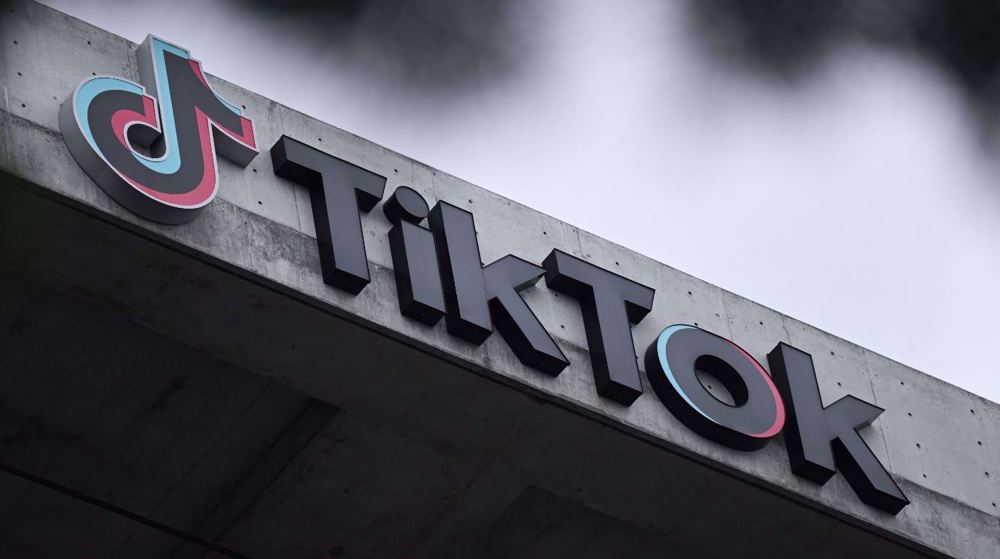
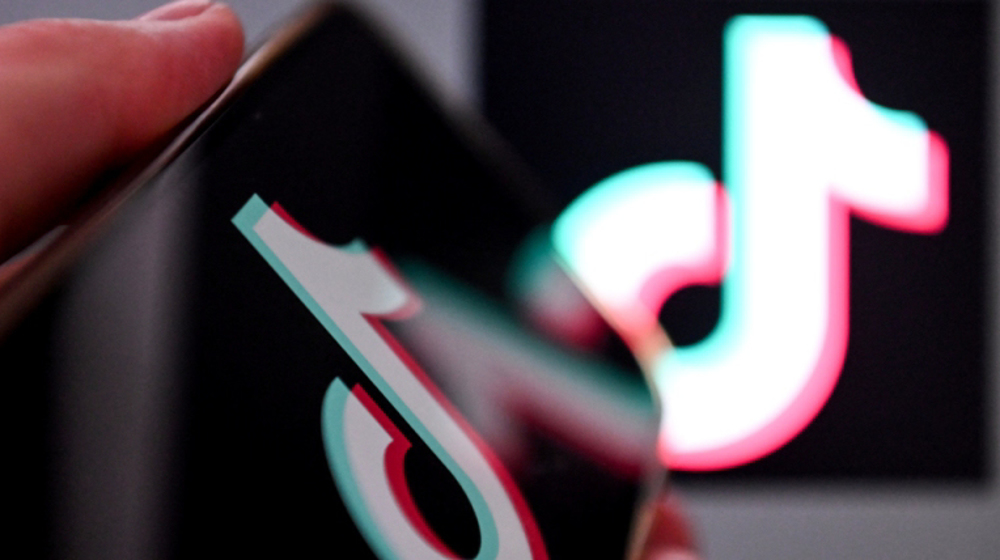
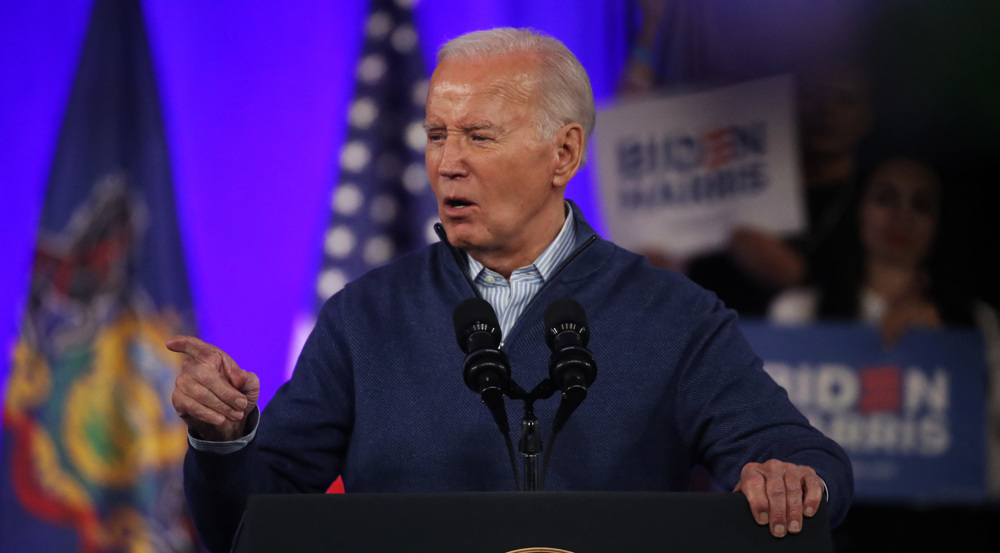
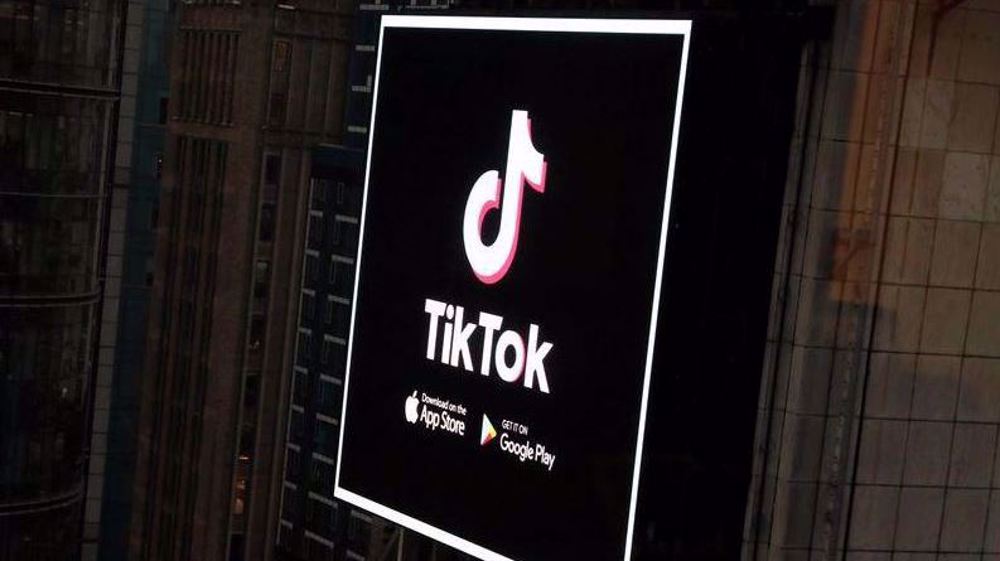
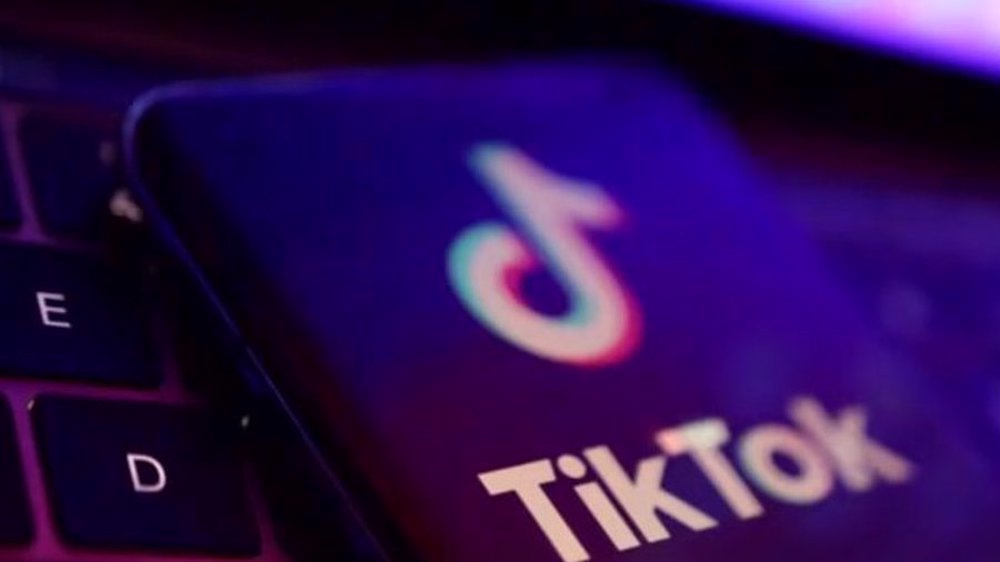

 This makes it easy to access the Press TV website
This makes it easy to access the Press TV website